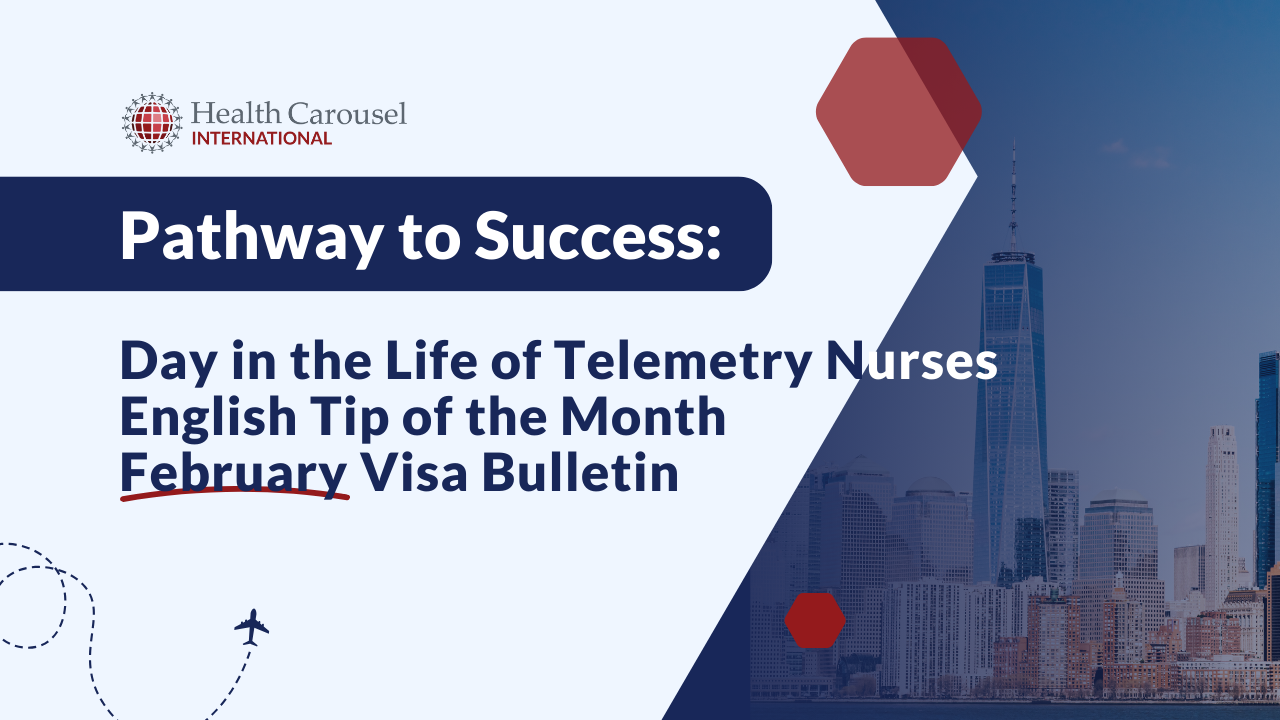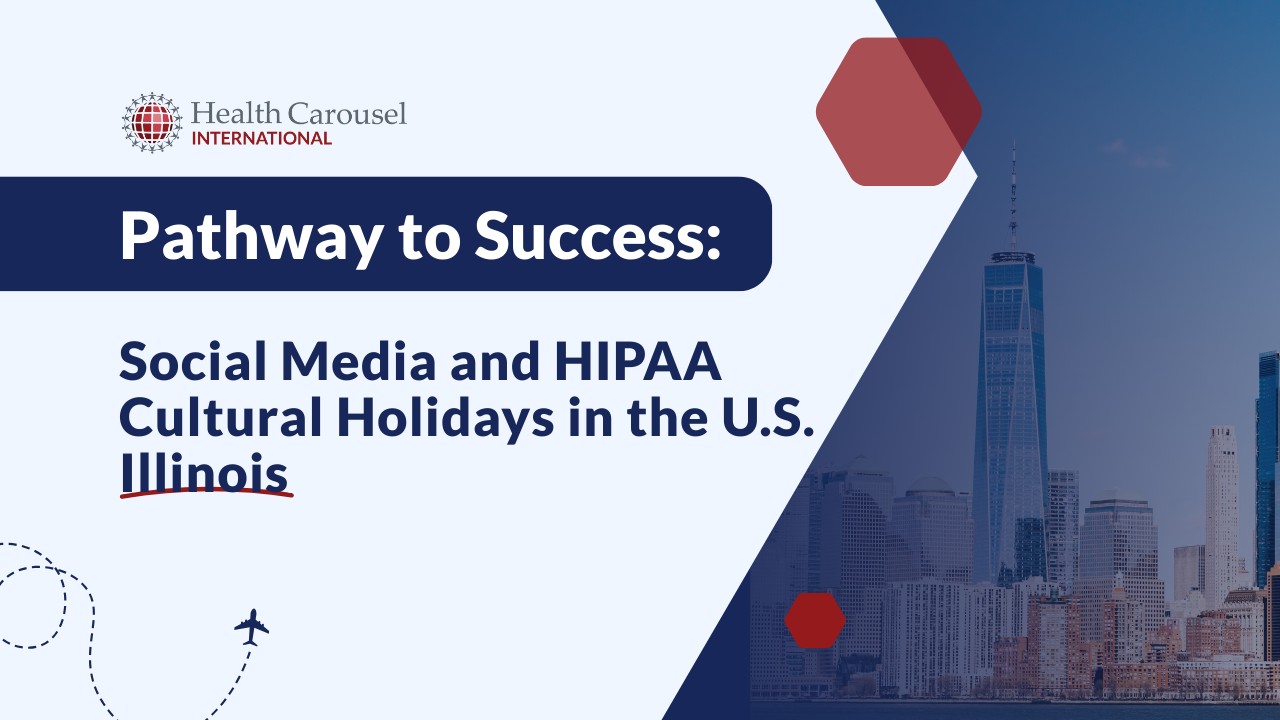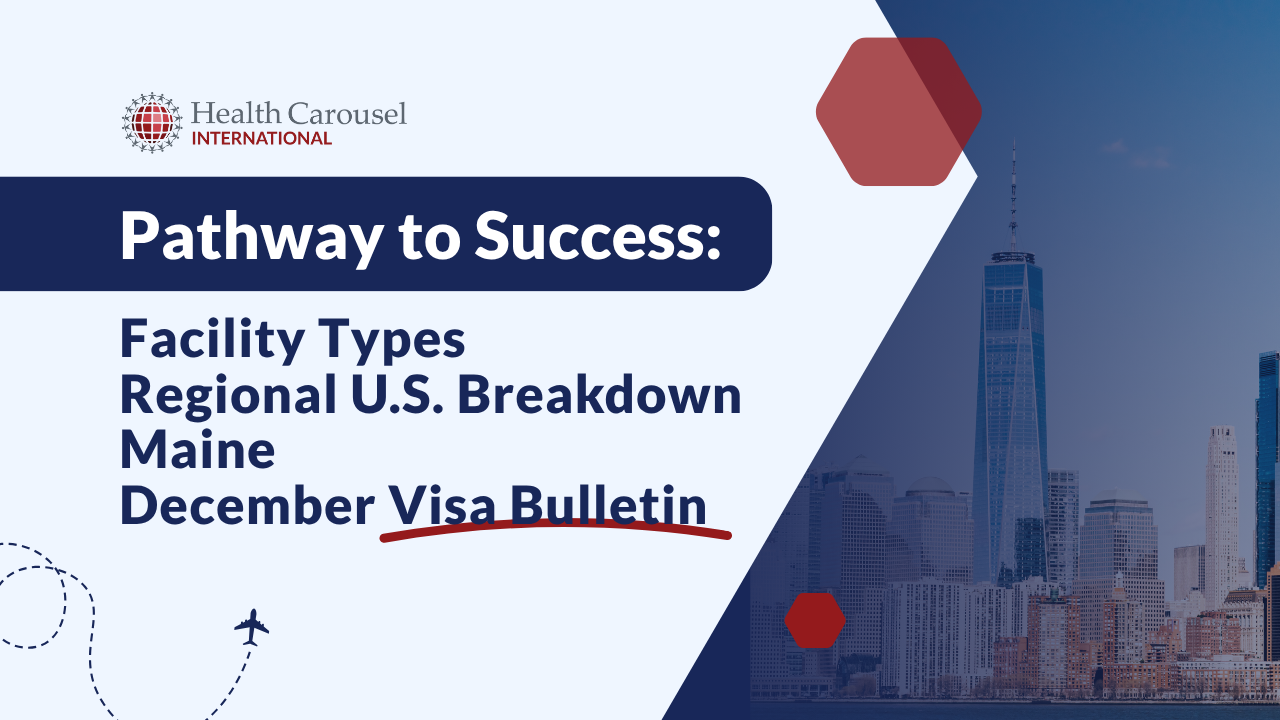Psychiatric Nursing: Nurturing Hearts and Minds in America's Healthcare System
August 25, 2025
%20(1).png)
Psychiatric nursing involves providing compassionate, ethical, and evidence-based care to patients struggling with mental health conditions. As a psychiatric nurse, you care for and nurture the minds and hearts of individuals dealing with complex inner struggles. Your role involves understanding mental health disorders, building therapeutic relationships, managing medications, providing counseling, and coordinating care with psychiatrists and an interdisciplinary team.
In America, the field of psychiatric nursing presents unique and meaningful career paths for internationally educated nurses. Through advanced expertise, cultural sensitivity, and dedication, foreign-educated nurses can find meaningful work in psychiatric units and deliver critical care to patients struggling with a variety of disorders.
Diverse Mental Health Landscape in Psychiatric Nursing
Psychiatric nurses care for patients across a diverse landscape of mental health disorders, both temporary and long-lasting. These disorders may be:
- Acute: Acute mental health conditions come on quickly but are usually resolved in less than six months. This can include a brief psychotic disorder or a severe panic attack, among other conditions.
- Chronic: Chronic mental health conditions are long-lasting and persistent. While symptoms fluctuate, the illness continues over many years. Conditions include bipolar disorder, OCD, PTSD, chronic depression, and more.
Psychiatric nurses encounter individuals from a variety of backgrounds, from nurturing patients fighting crippling anxiety to helping those battling addiction. This role can be challenging, as nurses must manage a broad range of symptoms and medications for different diagnoses. Nurses must also build trust with patients who may be suspicious or disconnected and coordinate care plans across large interdisciplinary teams.
While it takes hard work, the rewards of psychiatric nursing are great. These nurses have the opportunity to empower patients to manage chronic conditions and work toward recovery. Seeing patients transform and regain functioning over time is a powerful testament to the hard work of these mental health professionals.
Through expertise and empathy, psychiatric nurses strive to promote holistic well-being - encompassing emotional, social, physical, and spiritual health. They understand mental health influences all aspects of life and seek to connect patients to resources, therapies, and activities facilitating total wellness. This diversity of care is challenging yet immensely fulfilling.
Varied Work Settings
The dynamic scope of practice as a psychiatric nurse adapts across settings - from outpatient clinics to acute mental health facilities. In outpatient environments, nurses monitor patients living independently in communities. They track medication efficacy, provide counseling for coping strategies, and watch for signs of declining mental health.
In highly acute mental health units, nurses care for individuals unable to function alone. They conduct mental health assessments, implement safety precautions if risks exist, and closely track symptoms. They also collaborate on treatment plans that stabilize conditions for an eventual safe discharge. This requires adapting communication approaches to each person’s changing lucidity.
Additionally, specialized inpatient psychiatric facilities exist exclusively treating substance addiction, child behavioral disorders, or geriatric mood changes. Here, nurses incorporate therapies catering to the population’s needs - from play and art to pet and music therapy. They also educate families and caregivers about involved home care.
As a psychiatric nurse, wherever you work, you must seek to create a therapeutic environment while collaborating with teams to provide the best possible care to patients. A nurse's ability to tailor psychiatric nursing across settings makes all the difference.
Because these varied work settings can be an adjustment for foreign-educated nurses, Health Carousel International provides in-depth support through our clinical residency program and transition-to-practice program. These options help ensure the beginning of your career is successful, and the transition is smooth, as you'll be exposed to working environments in the U.S. for psychiatric nurses. Our support includes pre-deployment preparation, clinical support, and post-arrival orientation.
Specialized Units and Patient Demographics
Within psychiatric nursing, many options exist to work with specialized populations, such as:
Specialized Psychiatric Units
Addiction Treatment Floors
- Care for individuals battling substance addiction and withdrawal.
- Incorporate group counseling, 12-step programs, and medication therapy.
- Rewarding to support recovery and see transformation.
Geriatric Psychiatric Units
- Treat age-related cognitive and mood disorders like dementia and depression.
- Use reminiscence therapy and tailored approaches.
- Opportunity to uplift the elderly.
Child & Adolescent Psychiatric Units
- Treat behavioral disorders, learning disabilities, and self-harm risks.
- Collaborate with families and schools.
- Chance to nurture healthy development.
Caring for Special Needs
In addition to caring for mental health conditions, psychiatric nurses may treat special needs populations, which includes assisting with:
- Physical disabilities
- Neurological conditions
- Complex medical needs
- Requires adapting approaches and environment.
The challenges of working with diverse patient populations include learning the specifics of psychiatric conditions patients face and tailoring approaches and psychotherapies to meet their needs. It also requires coordinating comprehensive care plans across many providers.
However, the rewards are profoundly fulfilling, as nurses make a huge difference in lives across wide-ranging demographics. At Health Carousel International, our commitment to ethical recruitment and global sustainability of nurses directly aligns with the diverse challenges presented in specialized psychiatric units.
International Perspectives in Psychiatric Nursing
As internationally educated nurses transition into America’s psychiatric care network, differences arise. Overcoming differences in cultural attitudes, healthcare policies, and privacy protocols can be challenging initially. For example, medication administration practices in mental health nursing may vary, and nurses must be up-to-date on U.S. processes.
Additionally, balanced nurse-to-patient ratios enabling individualized care may be different abroad. Furthermore, technologies like telepsychiatry expand care reach in America, influencing how nurses operate. That’s why tailored coaching helps international nurses grasp clinical workflows. You’ll still integrate creative interventions from your home country alongside best practices here to enhance therapeutic plans.
HCI provides a well-being-focused approach to your arrival in America, which includes professional, physical, social, and financial aspects of your adjustment. With decades of experience, we know how to address the challenges international nurses face adapting to American psychiatric patient care.
Overcoming Challenges in Psychiatric Nursing in America
Let's explore more in-depth some challenges you may face as an international nurse in mental health care and how HCI helps you overcome them:
- Emotional Toll: Witnessing crises can cause immense distress over time if nurses don't care for their mental health through counseling support and self-care strategies. Building healthy coping skills and maintaining a work-life balance protects against fatigue.
- Assessing Diverse Conditions: Learning to proficiently use assessment tools to evaluate and diagnose a wide range of psychiatric conditions poses initial challenges.
- Managing Aggression: Employing de-escalation techniques and ensuring safety during behavioral crises requires specialized training.
- Suicide and Self-Harm Risks: Conducting competent suicide risk screenings, establishing prevention protocols, and using harm reduction approaches helps overcome risks.
- Mental Health Misconceptions: Gently educating colleagues to reduce stigma through modeling respect and compassionately advocating for patients aids change.
- Complex Medications: Learning details of complex psychotropic drug classes, appropriate doses, and side effect profiles and monitoring effectiveness through consulting psychiatrists develops over time.
- Building Therapeutic Relationships: Compassion and trust flourish through active listening, validating struggles, and reassuring consistently.
- Crisis Intervention: Rapid risk assessment, emergency decision-making, clinical confidence, and protocol awareness will grow with repeated simulation practice.
- Multidisciplinary Collaboration: Nurses must have smooth coordination among psychologists, social workers, recreation staff, and more.
- Personal Resilience: Intentional self-care and seeking mental health resources when struggling improves resilience to perform optimally.
- Legal and Ethical Concerns: Nuanced judgment around commitment policies, reporting mandates, and restrictive interventions evolves through ethics training.
- Cultural Sensitivity: Ongoing learning prevents assumptions, while sensitive approaches demonstrate understanding.
- Preventing Burnout: Monitoring workload, having a supportive community, and accessing wellness resources helps prevent burnout.
Cultural Competence and Training from HCI
To help address these challenges and adjustments, HCI offers a range of support and programs for international nurses. Cultural competence is a cornerstone of effective care in psychiatric nursing, as nurses must build trust and rapport with patients battling a range of disorders. HCI's cultural competence training and pre-arrival education aim to ease this process, simplifying the adjustment period for foreign-educated nurses.
In addition, we provide personalized guidance to nurses to help with specific challenges they may face in this transition. With our support, you are never alone. By taking care of your total well-being and easing your transition to America, you can provide the best care possible to patients.
Patient-Centered Care
Another fundamental aspect of psychiatric nursing is building authentic healing connections centered around trust and understanding with your patients. As a nurse, you must purposefully foster therapeutic relationships beyond just managing symptoms and medications. Nurses spend time engaging individuals in activities they find meaningful, from gardening to playing guitar, to learn their passions, goals, and dreams.
With a combination of medical expertise and personalization, psychiatric nurses take a holistic approach to care to pave the road to recovery. When you align psychosocial approaches, counseling considerations, pharmacological options, and personalized support to help your patients, you can make a life-changing difference.
Career Advancement Opportunities
Psychiatric nursing opens up various specialization options, like becoming a board-certified psychiatric mental health nurse. This clinical knowledge then prepares nurses for advanced frontline or managerial roles. For instance, psychiatric nurse practitioners provide complete psychiatric care, prescribe medication, and manage facilities. Forensic psychiatric nursing also blends mental health expertise with legal systems support.
Additionally, those passionate about research can pursue doctorates and become faculty-shaping future nurses. Nurse executives focused on leadership can also earn director of nursing roles guiding inpatient psychiatric units.
By earning certifications (such as Trauma Nursing Core Course) or gaining continuing education, you can advance in your psychiatric nursing role to take on more responsibility and achieve your dreams.
How HCI Can Help
As you begin and advance in your career as a foreign-educated nurse, HCI is by your side to provide support to help you build psychiatric nursing skills through customized modules. Nurses can shadow experienced psychiatric nurses across diverse settings while advancing their exposure as confidence strengthens. Additionally, our transition-to-practice simulated environments create immersive high-acuity scenarios for trainees to grow competence in risk assessment and emergency decision-making.
Throughout your career, we provide personalized support by assigning dedicated nurse liaisons to guide you extensively pre-arrival and beyond. Needs assessments pinpoint specific growth areas for the individual nurse, while personalized learning plans outline goals tailored to your strengths. We even offer an Employee Assistance Program providing free, confidential mental health counseling and resource access. Our goal is to give you everything you need to advance your career and realize the American dream as a psychiatric nurse (or any nursing profession).
Find Meaning in Psychiatric Nursing
Psychiatric nursing in America offers meaningful work caring for patients' mental health across diverse settings and populations. The ability to profoundly help those emotionally suffering is rewarding. However, there are challenges in handling complex conditions, behaviors, medications, cultural gaps, and workload stress.
Committed nurses can overcome difficulties through learning specialized skills and supporting each other. Opportunity awaits international nurses passionate about mental health and connecting with patients from different backgrounds. If you're ready to take the first step, Health Carousel International is here to support you.
About Health Carousel International
At Health Carousel International, we deeply understand the meaningful impact of psychiatric nursing and the immense dedication this specialty requires. That's why we offer unparalleled support empowering international nurses to sustainably spread compassionate mental healthcare across America's communities.
With 17+ years of experience successfully placing nurses in roles across America, we know what it takes to help you adjust and thrive in the U.S. From NCLEX prep to continuing education and career coaching, we help you gain specialized expertise. Additionally, you benefit from tailored assistance as we support smooth transitions for you and your loved ones through visa logistics, relocation, and settling in.
Start living your dream as a psychiatric nurse in America today. Apply to our PassportUSA program to get started.
Related Articles

Nursing in the USA
What It’s Like to Be a Telemetry Nurse in the US and Visa Updates: January 2026 Broadcast Recap
January 29, 2026
Read More

Nursing in the USA
December 2025 Broadcast Recap: US Holidays, Social Media Tips & Life in Illinois
December 18, 2025
Read More

Nursing in the USA
What Nurses Need to Know: November 2025 Broadcast Highlights & Visa Bulletin
November 25, 2025
Read More
Start Your US Nursing Career
Turn your dreams into reality by taking the first step today. Apply to the PassportUSA program to connect with a recruiter.
.webp)
.webp)